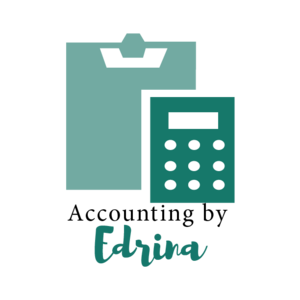4-Step Checklist for Your Fall Finance Checkup
We’re only five months away from the year 2020. If hindsight tells us anything, it’s that neglecting to manage personal finances can have some serious consequences. Before we know it, we’ll be setting new goals for the next year ahead. Let’s not get ahead of ourselves, though, because we still have months to go before we finish the year strong.
Doing a personal finance checkup might not be on your radar right now, but I’m here to tell you that it should be! It can be easy to lose momentum towards the end of the year. A finance checkup will allow you to re-energize and reevaluate your goals, accounts, and paperwork, while doing some light planning for the calendar year ahead.
Here’s a 4-step checklist for completing your fall finance checkup.
Review Your Personal Finance Goals
Hopefully you’ve documented your goals somewhere, either in a notebook or using an app. Pull up your personal finance goals so you can evaluate where you stand. First, make sure those goals are S.M.A.R.T. goals. They should be specific, measurable, achievable, relevant, and time-bound. If any of your goals do not meet these criteria, this checkup is the time to make sure those goals are S.M.A.R.T. No need to do any backtracking, just make sure from this point forward you have these criteria in place.
Reviewing your savings goals not only gives you a snapshot of where you are financially, but it also allows you to reconnect emotionally. Remember why you set these goals in the first place. Was it to pay off debt? Was it to save for a vacation or a new car? Maybe it’s saving for a down payment. If your why has changed, a checkup will allow you to rethink those reasons why you’re saving and budgeting every month. Be sure to document any changes you make to your goals.
2. Budget for the Holidays Now
This is a big one! According to a recent article, the average person was projected to spend just over $1,000 on gifts in the 2018 holiday season. If you’ve been sticking to a budget every month, you know exactly where your money is going. Shopping for gifts? Probably not in your budget right now. I’m not saying you should spend $1,000 on holiday gifts, but it’s not too early to start budgeting for it. If you save $100 every month from now until December, you’ll have $500 to spend—that’s a lot!
You know what amount is right for your budget. The point is to add a category to your budget for holiday spending and start setting aside a small amount every week or month to prepare. Then when it’s time to shop, you won’t be stressing out about overspending because you’ll know exactly how much you have to spend.
Tip: Use my Christmas Planning spreadsheet to keep track of your spending budget.
3. Check Your Accounts & Credit Score
Have you ever let months go by without looking at your bank account? With everything being paperless these days, it’s easy to forget to check your monthly statement. During your checkup, go look at each of your accounts. Look for anything that doesn’t look right and make sure you accounted for everything in your budget. Does your account meet your needs? Talking to your bank about different accounts is not a bad idea if you’re looking for more features and benefits.
It’s also a good idea to check your credit score, especially if you don’t know your score right now. There are many free tools for checking your score, like Experian, Credit Karma, and my personal favorite, Wallethub. A credit score of 700 and above is considered a good score. A good score gives you a leg up when you want to do things like buy a car or rent an apartment, so making sure you’re working towards a good score is important.
4. Account for Any Life Changes
This step is for those who have experienced a major life change this year, including marriage, birth, death, or divorce. These four major life events could affect your personal finances in a big way.
If you got married, talk about how you will run your finances as a couple. This may require closing, opening, or combining accounts. The birth of a baby means checking up on your life insurance paperwork and adding a new beneficiary. Start thinking about a family estate plan and ensuring you have a will. While I hope you haven’t experience a death in the family or a divorce, those life events also require extra financial care. Life happens, which is another reason a budget is important for your personal money health. Make a note at this time to schedule an appointment with your Financial Advisor or Tax Accountant. The changes from any of these life events may have an impact on your taxes. Ask them for ways to minimize your tax liability moving forward.
If you’re eager to end the year strong and achieve the financial goals you set at the beginning of the year, then this checklist is for you. Let’s do this!
Blog Posts You Might Enjoy:

